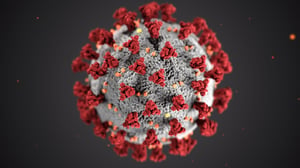
Spring Forward, But Don’t Fall Back: A Review of the Most Recent Updates to NH COVID-19 Guidance
The clock went forward as did our progress with fighting the pandemic. More people have been vaccinated per the states schedule and it appears the choice to become vaccinated will soon be everyone’s. The Governor has lessened the restrictions in many areas and he predicts the upcoming summer to be more like 2019 vs 2020. This is all good news of course but it’s a bit premature to be tossing that mask out the window, skipping the sale on hand sanitizer, and planning your family reunion just yet. Despite the progress we are seeing the numbers of COVID-19 cases creep up a bit; again, we can blame “covid fatigue” but also, we can blame progress. Don’t get me wrong, progress is great; but it can also give a false sense of security.
PARTNER SPOTLIGHT
Dealer Management System, Computer Technology, Media/Advertising, Automotive Auction, F & I/Aftermarket Products, Automotive Technology Training & Compliance
 A NHADA Gold PARTNER
A NHADA Gold PARTNERComputer Technology, Automotive Shop Equipment, Environmental Services
 A NHADA Platinum PARTNER
A NHADA Platinum PARTNERF & I/Aftermarket Products, Automotive Technology Training & Compliance, Environmental Services
.png?width=150&name=corp_logo_horz_on_light_with_trademark_symbol_1200w%20(002).png) A NHADA Diamond PARTNER
A NHADA Diamond PARTNERWhen the numbers go down and vaccination rates go up, some feel they can let their guard down; when in fact this is the time that we need to be even more diligent in our fight against the pandemic.
NH COVID-19 Travel, Screening and Exclusion Guidance
As of March 16, 2021 there were many changes made to the NH COVID-19 Travel, Screening, and Exclusion Guidance document put out by the Bureau of Infectious Disease Control. View the updated guidance here.
Important Changes
- Employees with symptoms of COVID-19 (even mild symptoms) should stay home and be evaluated for COVID-19 regardless of prior infection or their COVID-19 vaccination status. In other words, if someone exhibits any symptoms listed on the screening tool it doesn’t matter if they have been vaccinated or have had COVID-19 already; they cannot come into work. They should be referred to their primary care provider for evaluation of the need for testing just like those that are not vaccinated or have never had COVID-19.
- In order to be allowed back to work they must meet certain criteria that includes:
-
- They have tested negative for COVID-19 and are fever free without fever reducing medication for 24 hours – or;
- They have immunity from being fully vaccinated against COVID-19 (14 days out from completing the vaccine) or from recently being diagnosed with COVID-19 in the past 90 days and their healthcare provider has assessed their risk and testing is not needed and they have been fever-free for 24 hours without the use of fever reducing medication – or;
- They meet the CDC criteria for discontinuation of isolation which applies to people who test positive for COVID-19 or symptomatic people who are not tested but do not have immunity from vaccination or prior infection.
Travel
Employees who report close contact with someone with COVID-19 or those reporting travel risk factors (international travel or travel on cruise ships) should not be allowed in the facility.
- A person can be allowed back to work when at least 10 days have passed from their last exposure to a person with COVID-19 or return from international or cruise travel.
- Employees have an option to shorten the quarantine period if required to quarantine based on travel. Employees can do so by getting a test on day 6-7 of quarantine; in this case the test must be a PCR test and not a rapid test. They must also be asymptomatic. The test out option is only for travel and not for close contact exposure.
- Those ending quarantine after 10 days should continue to monitor themselves closely for even mild symptoms of COVID-19 for a full 14 days after exposure or travel.
- Persons who are 14 days or more beyond completion of COVID-19 vaccination (14 days beyond their last dose of 2 dose vaccination or 14 days after their vaccination with a single dose vaccine)
- Persons who are within 90 days of a prior COVID-19 infection that was diagnosed by PCR or rapid testing (if a person had a previous infection that was more than 90 days prior then they are still subject to quarantine)
Changes are good — again, they show progress in our fight against the pandemic! There are also changes being made to the restrictions with some social activities and tourism. Some items in the past were mandated and are now recommendations. To this I say “just because you can doesn’t mean you should."
We have to be smart and not let our guard down; there is still a lot of work to be done in the battle against COVID-19.
Please continue to screen your employees and customers daily and adhere to the guidelines, wear your masks and continue to practice good hygiene and follow all the mitigation measures that have been laid out for us.
NHADA continues to be here for our members for “all things COVID”; please reach out to us with your questions.



















.png?width=150&name=Ally_Final%20Logos%20and%20Pairings_11.14.2018-01%20(2).png)


-2.png?width=150&name=Wipfli%20Logo%20Blue%20RGB%20(1)-2.png)


.jpg?width=150&name=NHADA_Partner_FTR_Img_NHADA_Insurance%20(1).jpg)


.jpg?width=150&name=NHADA_Partner_FTR_Img_JMA(1).jpg)




